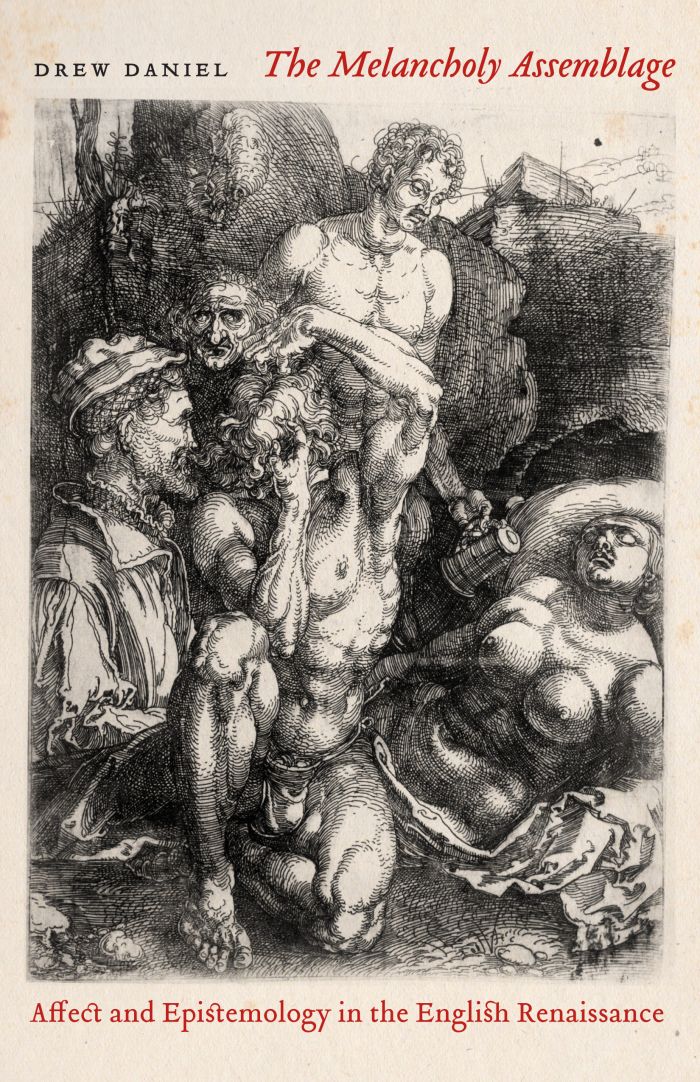The Melancholy Assemblage
Affect and Epistemology in the English Renaissance

This book can be opened with

This book considers melancholy as an “assemblage,” as a network of dynamic, interpretive relationships between persons, bodies, texts, spaces, structures, and things. In doing so, it parts ways with past interpretations of melancholy. Tilting the English Renaissance against the present moment, Daniel argues that the basic disciplinary tension between medicine and philosophy persists within contemporary debates about emotional embodiment.
To make this case, the book binds together the paintings of Nicholas Hilliard and Isaac Oliver, the drama of Shakespeare, the prose of Burton, and the poetry of Milton. Crossing borders and periods, Daniel combines recent theories that have—until now—been regarded as incongruous by their respective advocates. Asking fundamental questions about how the experience of emotion produces community, the book will be of interest to scholars of early modern literature, psychoanalysis, the affective turn, and continental philosophy.
In 'The Melancholy Assemblage: Affect and Epistemology in the English Renaissance', Daniel makes the kids of vibrant connections between earlier and later theoretical regimes that Floyd Wilson largely eschews.——Studies in English Literature 1500-1900
This is an alert and edgy work by a major new voice in Renaissance studies.——Julia Reinhard Lupton, SEL (Recent STudies in Tudor and Stuart Drama)
In this stimulating, inventive, and moving volume by one of Shakespeare studies’ most brilliant and original emerging voices, Drew Daniel uses the history of melancholy in order to map the haptic loops and iconic postures that bind together thinking, feeling, and making in art and life. Along the way he answers questions that really matter, such as how melancholy forges friendships among misanthropes, and why fashion makes us sad.
“. . . a powerfully engaging and deeply rewarding study of melancholy in English Renaissance literature.”

